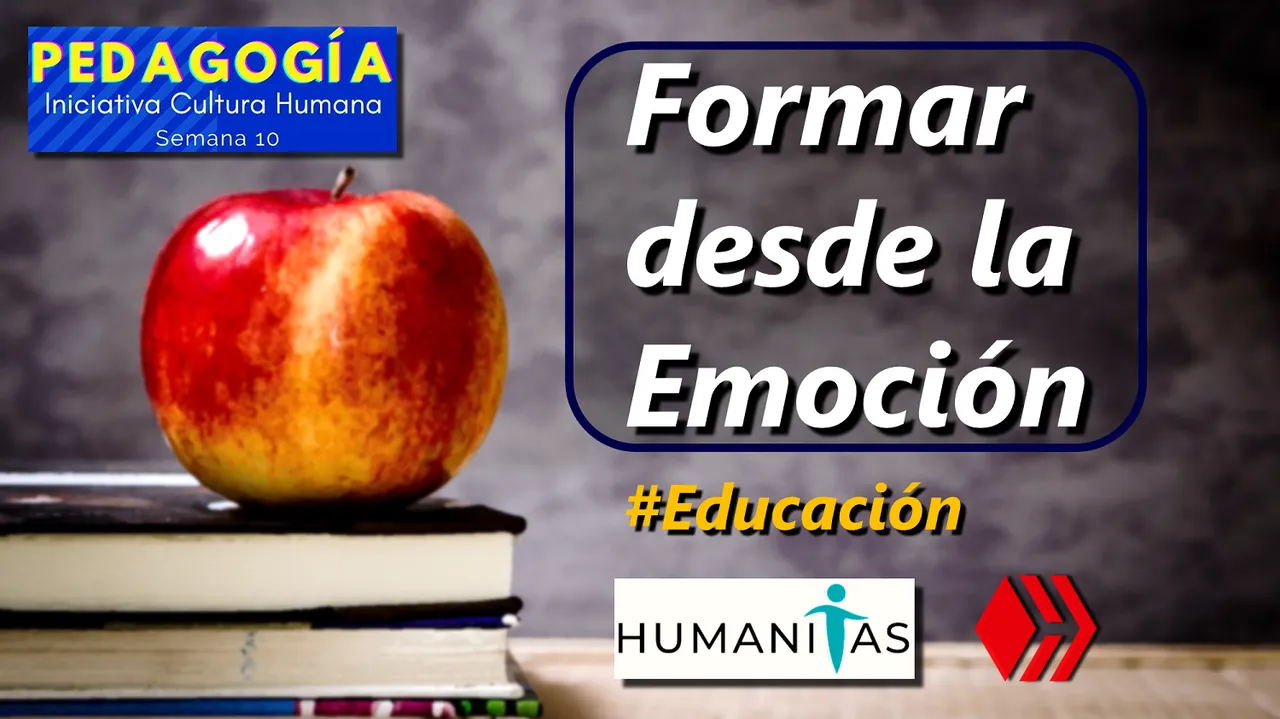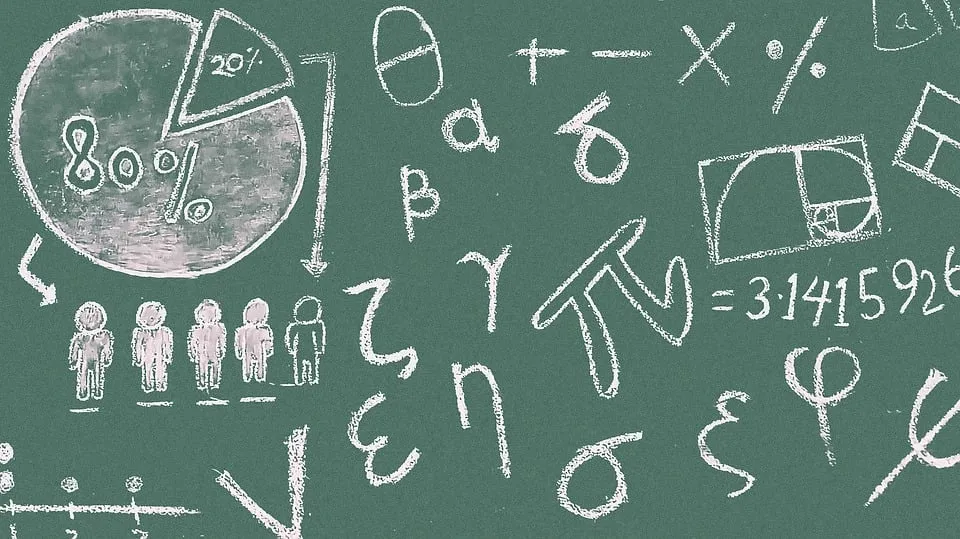Estos últimos días en #Humanitas te invitamos a reflexionar acerca de la Pedagogía y la Educación. Un tema importante, ya que de alguna manera todos tenemos nuestra historia en la educación. A diferencia de otros temas humanísticos, todos o casi todos tenemos algo en común: fuimos a la escuela o universidad. Es también un tema especial para mi ya que no solo tengo experiencia universitaria como estudiante sino también como profesor o preparador.
Este es el enlace de la iniciativa: Iniciativa: Cultura Humana semana 10: Pedagogía. En la comunidad Humanitas.

Experiencia como estudiante y profesor
Podría decirse que más que ingeniero he sido una especie de profesor a lo largo de mi vida. Iniciando la segunda mitad de la carrera universitaria en Ingeniería Civil decidí convertirme en preparador de una asignatura de cuarto semestre llamada "Estática Aplicada". Eso significa que, además de las horas de clase, los estudiantes disponían de ciertas horas a la semana para consultarme dudas acerca de dicha materia. También podía ser llamado a sustituir al profesor en el salón de clases en caso de falta, cosa que llegué a hacer unas 3 veces.
Incluso luego de graduarme me dediqué a crear contenido acá en la comunidad #STEMsocial acerca de dicha materia. También mi servicio comunitario se basó en dar clases. Allí si tuve una experiencia más exigente en cuanto a ser profesor como tal ya que se trataba de bachilleres recién graduados que querían optar a estudiar ingeniería. No eran solo consultas puntuales sino el rol de profesor en un salón, por lo cual nosotros teníamos el reto de nivelar sus conocimientos en matemática y física sabiendo las enormes deficiencias de la educación secundaria en el país.
Creo que dedicarse de alguna forma a la enseñanza requiere de cierta vocación, porque aunque es algo que todos pueden hacer en cualquier área de la vida, en el mundo académico específicamente hace falta algo más. La razón por la que escogí ser preparador quizás fue porque quería compartir mi entendimiento, o facilitarlo, no quedármelo solo yo y aportar nuevas formas de abordar los ejercicios.
La pedagogía, según lo que entiendo, sería no solo el arte de enseñar o educar sino que estudia también los métodos de enseñanza y cómo hacer para mejorarlos. Me parece que sin saberlo he aplicado o intentado aplicar pedagogía en gran parte de mi vida, ya que precisamente aportar nuevas maneras de entender algo más fáciles o menos complicadas que las ya existentes siempre ha sido uno de mis objetivos principales.

En mi experiencia como estudiante universitario me encontré con dos extremos: profesores excesivamente teóricos y profesores excesivamente prácticos o poco claros. Los primeros solían ser difíciles de entender y los segundos difíciles de seguir. El exceso de teoría desconecta la parte "emocional" que te hace interesarte y conectarte con el sentido de lo que estudias, mientras que en el otro extremo eran profesores que parecen "improvisar" y es difícil entender el fundamento teórico de lo que hacen ya que no lo explican mucho o asumen que tú ya lo sabes. Te dejan en el "aire".
La mayoría de mis profesores eran una mezcla de ambos extremos. Pero más allá de los extremos, hubo algunos que destacaron por su gran capacidad de transmitir su conocimiento: los Profesores Carmelo Gil, Adrián Taboada y Steve Merlo, son de los que mejores recuerdos guardo desde el punto de vista pedagógico.
En lo particular, tuve más problemas para entender a los profesores del segundo tipo, los cuales eran demasiado prácticos e "intuitivos". Si hay algo que podría criticar desde el punto de vista de mi experiencia como estudiante de Ingeniería es que la brecha pedagógica entre las materias teóricas y las materias de proyectos fue muy grande. Debería existir alguna materia que enseñe al estudiante a "abordar proyectos".
Educación en el mundo moderno
Hablando de la pedagogía y la educación en general, podría decirse que hay un gran reto actualmente por actualizar las escuelas y universidades al mundo moderno. Ya escribí una publicación hace un tiempo acerca de un documental polémico llamado "Un Crimen llamado Educación". La educación escolar suele ser muy restrictiva o poco flexible, al contrario de lo que podemos ver en países nórdicos como Finlandia o Suecia los cuales destacan en el mundo por su modelo educativo.
Lo que podría proponerse como solución es, tal como he dicho arriba, "ponerle emoción" a la teoría. No es un secreto que aprendemos mejor algo cuando nos identificamos con ello o nos apasiona. Por ejemplo, siempre he sido muy crítico con la manera en que se suele enseñar en inglés en Latinoamérica, la cual consiste en inundar al estudiante con gramática. Si funcionara de esta manera, todos se graduarían de bachilleres sabiendo hablar inglés perfecto, cosa que no es así porque aunque se volvieran expertos en gramática no podrían ni siquiera sostener una conversación básica. Pero ni se aprende gramática ni se aprende a hablar.

Hace un tiempo vi un video en el cual los números eran enseñados a los niños pequeños de manera muy simbólica y cualitativa. Era algo así como la utilización de puntos o líneas. De igual manera también se puede enseñar a multiplicar o dividir mediante símbolos, formas gráficas o más visuales. A través de algo que nos resulta familiar es posible entender y llegar a razonamientos teóricos más complejos de manera más fácil. Quizás esta manera no funcione para todos los conocimientos y saberes, pero al menos sí para los más esenciales. Otro idioma, por ejemplo, podría primero aprenderse de manera práctica, repitiendo y construyendo oraciones de manera oral, para luego ahondar en la gramática que hay detrás al ya serte un idioma más familiar.
La idea es impulsar la creatividad al máximo y especialmente la educación emocional, tema que hoy en día está siendo más tomado en cuenta. El reto es que la educación sea más flexible y dinámica, sin dejar de lado la cultura general.
Espero que hayas disfrutado de esta lectura. Aunque ya expiró esta iniciativa, te invito a dejar tu reflexión en cualquier momento acerca de la pedagogía y la educación en la comunidad #Humanitas. Invito a participar a @hannymarchan @liveofdalla @graciadegenios @lisbethseijas
English version
These last days in #Humanitas we invite you to reflect on Pedagogy and Education. An important topic, since somehow we all have our history in education. Unlike other humanistic topics, we all or almost all of us have something in common: we went to school or university. It is also a special topic for me since I not only have university experience as a student but also as a teacher or trainer.
This is the link to the initiative: Initiative: Human Culture week 10: Pedagogy. In the Humanitas community.

Experience as a student and teacher
It could be said that more than an engineer I have been a kind of teacher throughout my life. At the beginning of the second half of my university career in Civil Engineering, I decided to become a instructor of a fourth semester subject called "Applied Statics". This meant that, in addition to the class hours, students had certain hours a week to consult me about the course. I could also be called upon to substitute the professor in the classroom in case of absence, which I did about 3 times.
Even after graduating I dedicated myself to create content here in the #STEMsocial community about the subject. My community service was also based on teaching. There I had a more demanding experience in terms of being a teacher itself, since they were recent high school graduates who wanted to opt to study engineering. They were not only specific consultations but the role of teacher in a classroom, so we had the challenge of leveling their knowledge in mathematics and physics knowing the enormous deficiencies of secondary education in the country.
I believe that to dedicate oneself in some way to teaching requires a certain vocation, because although it is something that everyone can do in any area of life, in the academic world it specifically requires something more. The reason I chose to be a teacher assistant was perhaps because I wanted to share my understanding, or facilitate it, not keep it to myself and bring new ways of approaching the exercises.
Pedagogy, as I understand it, would be not only the art of teaching or educating but it also studies teaching methods and how to improve them. It seems to me that without knowing it I have applied or tried to apply pedagogy in a great part of my life, since precisely to contribute new ways of understanding something easier or less complicated than the existing ones has always been one of my main objectives.

In my experience as a university student I encountered two extremes: professors who were excessively theoretical and professors who were excessively practical or unclear. The former used to be difficult to understand and the latter difficult to follow. Too much theory disconnects the "emotional" part that makes you interested and connected to the meaning of what you study, while at the other extreme were professors who seem to "improvise" and it is difficult to understand the theoretical foundation of what they do as they don't explain it much or assume you already know it. They leave you in the "air".
Most of my teachers were a mix of both extremes. But beyond the extremes, there were some who stood out for their great ability to transmit their knowledge: Professors Carmelo Gil, Adrián Taboada and Steve Merlo, are the ones I have the best memories of from a pedagogical point of view.
In particular, I had more problems to understand the teachers of the second type, who were too practical and "intuitive". If there is something I could criticize from the point of view of my experience as an engineering student, it is that the pedagogical gap between the theoretical subjects and the project subjects was very big. There should be some subject that teaches the student how to "approach projects".
Education in the modern world
Talking about pedagogy and education in general, it could be said that there is a great challenge nowadays to update schools and universities to the modern world. I already wrote a post some time ago about a controversial documentary called "A Crime Called Education". School education is usually very restrictive or not very flexible, contrary to what we can see in Nordic countries like Finland or Sweden which stand out in the world for their educational model.
What could be proposed as a solution is, as I said above, to "put emotion" into theory. It is no secret that we learn something better when we identify with it or are passionate about it. For example, I have always been very critical of the way English is taught in Latin America, which consists of flooding the student with grammar. If it worked this way, everyone would graduate from high school knowing how to speak perfect English, which is not the case because even if they became experts in grammar they would not be able to hold even a basic conversation. But you don't learn grammar and you don't learn to speak.

Some time ago I saw a video in which numbers were taught to young children in a very symbolic and qualitative way. It was something like using dots or lines. In the same way, multiplication or division can also be taught through symbols, graphical or more visual forms. Through something familiar to us it is possible to understand and arrive at more complex theoretical reasoning in an easier way. This way may not work for all types of knowledge, but at least it works for the most essential ones. Another language, for example, could first be learned in a practical way, repeating and constructing sentences orally, and then delving into the grammar behind it as it becomes a more familiar language.
The idea is to boost creativity to the maximum and especially emotional education, a subject that is being taken more into account nowadays. The challenge is to make education more flexible and dynamic, without neglecting general culture.
I hope you enjoyed this reading. Leave your comment or opinion.
Translated to English language with the help of DeepL.com
Otras redes sociales:
 |
 |
 |
 |
F1 & motorsports: @acontmotor
 |
 |
 |
 |
| ¡Gracias por visitar! — ¡Thanks for visiting!  |
